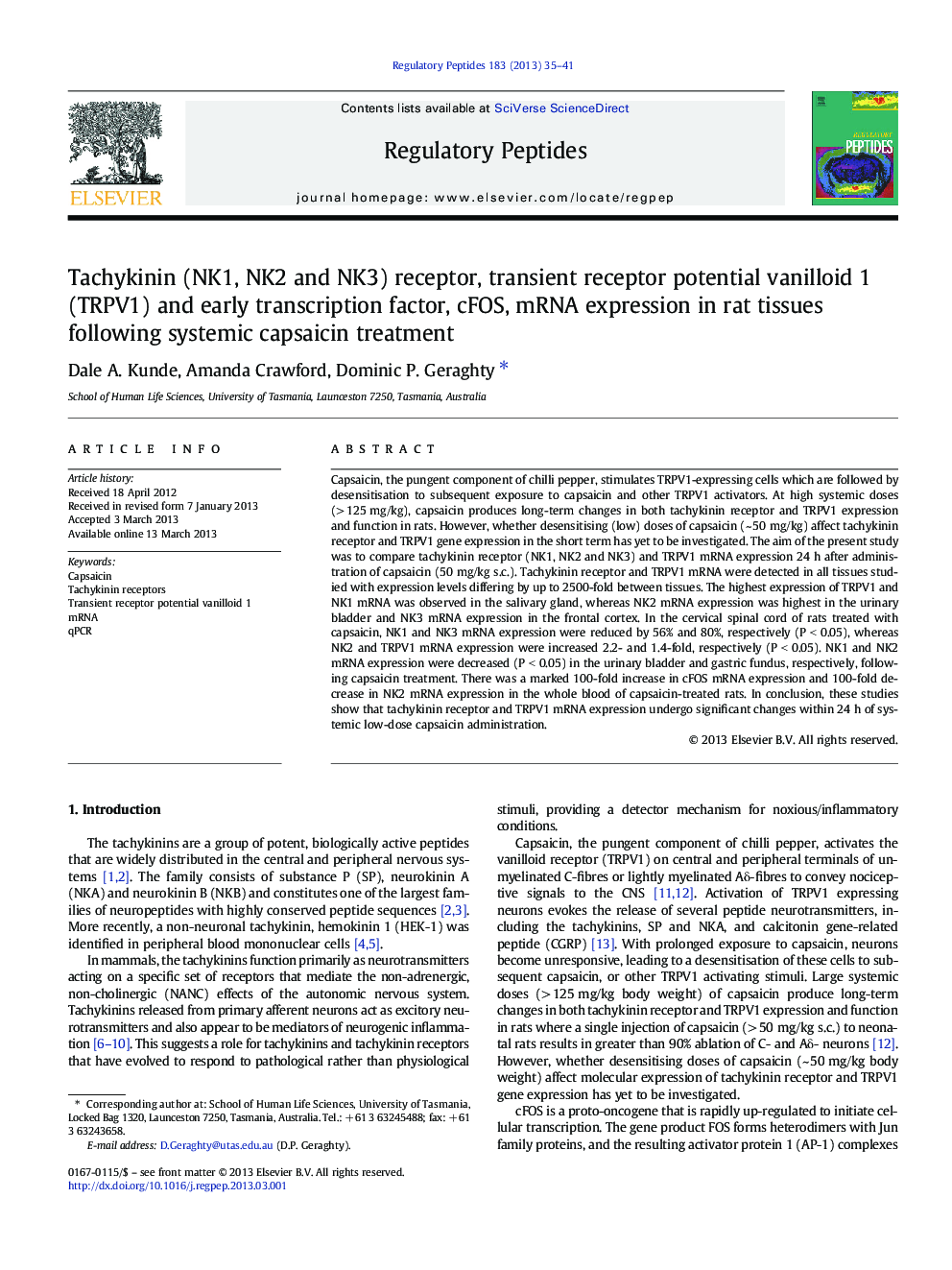| Article ID | Journal | Published Year | Pages | File Type |
|---|---|---|---|---|
| 2022443 | Regulatory Peptides | 2013 | 7 Pages |
•Capsaicin reduced NK1/3 and increased NK2 and TRPV1 mRNA in the spinal cord.•Capsaicin decreased NK1/2 mRNA expression in the urinary bladder and gastric fundus.•cFOS mRNA increased and NK2 mRNA decreased in whole blood of capsaicinised rats.•Capsaicin alters transcription of TRPV1, tachykinin receptors and cFOS in the rat.
Capsaicin, the pungent component of chilli pepper, stimulates TRPV1-expressing cells which are followed by desensitisation to subsequent exposure to capsaicin and other TRPV1 activators. At high systemic doses (> 125 mg/kg), capsaicin produces long-term changes in both tachykinin receptor and TRPV1 expression and function in rats. However, whether desensitising (low) doses of capsaicin (~ 50 mg/kg) affect tachykinin receptor and TRPV1 gene expression in the short term has yet to be investigated. The aim of the present study was to compare tachykinin receptor (NK1, NK2 and NK3) and TRPV1 mRNA expression 24 h after administration of capsaicin (50 mg/kg s.c.). Tachykinin receptor and TRPV1 mRNA were detected in all tissues studied with expression levels differing by up to 2500-fold between tissues. The highest expression of TRPV1 and NK1 mRNA was observed in the salivary gland, whereas NK2 mRNA expression was highest in the urinary bladder and NK3 mRNA expression in the frontal cortex. In the cervical spinal cord of rats treated with capsaicin, NK1 and NK3 mRNA expression were reduced by 56% and 80%, respectively (P < 0.05), whereas NK2 and TRPV1 mRNA expression were increased 2.2- and 1.4-fold, respectively (P < 0.05). NK1 and NK2 mRNA expression were decreased (P < 0.05) in the urinary bladder and gastric fundus, respectively, following capsaicin treatment. There was a marked 100-fold increase in cFOS mRNA expression and 100-fold decrease in NK2 mRNA expression in the whole blood of capsaicin-treated rats. In conclusion, these studies show that tachykinin receptor and TRPV1 mRNA expression undergo significant changes within 24 h of systemic low-dose capsaicin administration.
